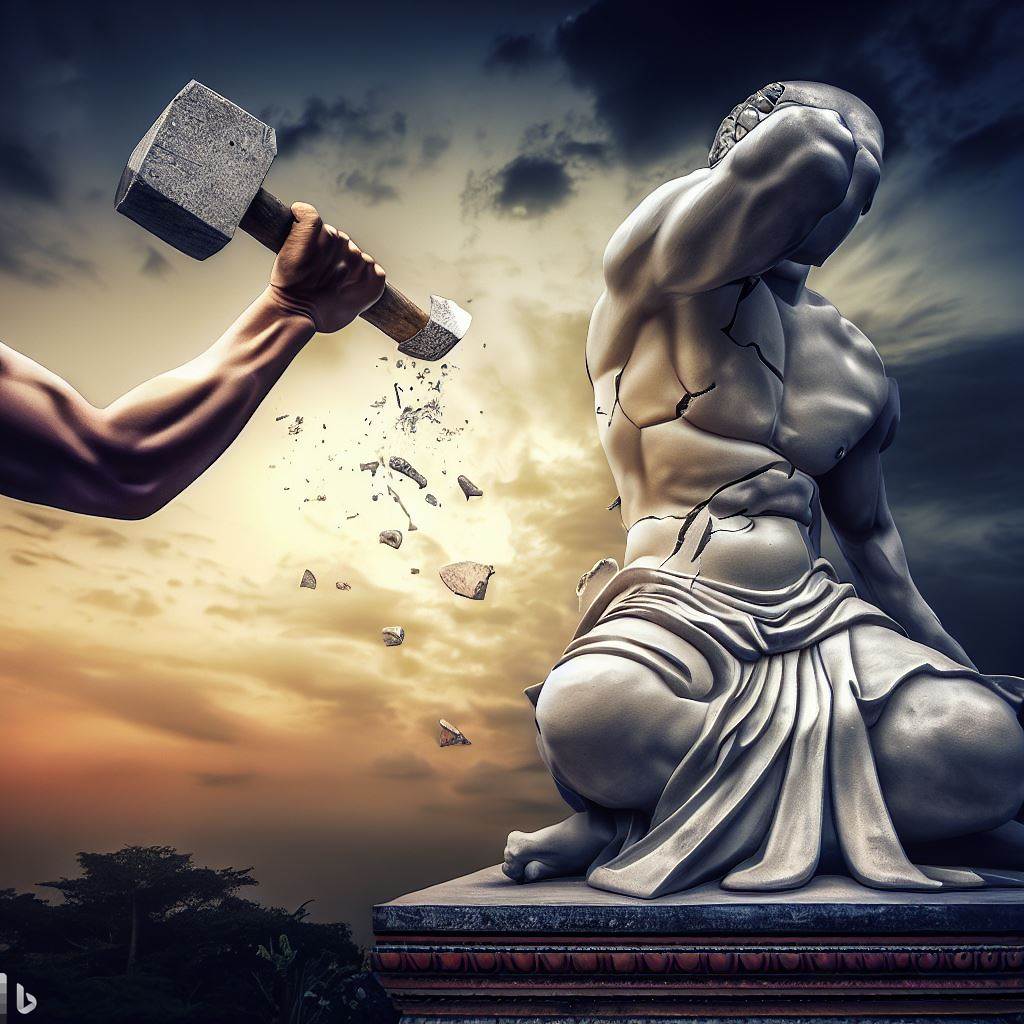Twilight of the Idols, or How to Philosophize with a Hammer, by Friedrich Nietzsche .

Translated by ChatGPT 3 & 4.
Richard Wagner: The title “Twilight of the Idols” is a play on the title of Richard Wagner’s opera “Twilight of the Gods” (“Götterdämmerung”). Nietzsche was once a close friend of Wagner’s, but later grew highly critical of Wagner’s views and music. This change of opinion is reflected in Nietzsche’s choice of title, implying that what Wagner considered gods, Nietzsche considered idols.
Francis Bacon: Nietzsche admired Francis Bacon’s empiricism and his critique of idolatrous errors (the “idols” of the mind) which led humans astray from knowledge. In this sense, “Twilight of the Idols” can also be seen as an homage to Bacon.
Title Analysis: The title “Twilight of the Idols, or How to Philosophize with a Hammer,” in Nietzsche’s probable intent, symbolizes the deconstruction of revered yet misleading beliefs (the ‘idols’). The ‘twilight’ signifies their end, while the ‘hammer’ embodies Nietzsche’s method of rigorous and radical critique. Rather than merely being a tool or technique, the ‘hammer’ implies an unyielding challenge to the status quo. Thus, the title encapsulates Nietzsche’s unconventional approach of reassessing established morals and ideologies, heralding a transformative shift in philosophical thinking that does not shy away from shattering illusions. It represents Nietzsche’s persistent and radical engagement with the dominant ideologies of his time and his commitment to their critique and deconstruction.
Foreword.
Maintaining cheerfulness in the midst of a gloomy and exceedingly responsible affair is no small feat of art: and yet, what is more necessary than cheerfulness? Nothing succeeds without exuberance having its share. The excess of strength alone is proof of strength. – A revaluation of all values, this question mark so black, so huge, that it casts a shadow on the one who sets it – such a fate of task compels one to run into the sun every moment, to shake off a seriousness that has become too heavy, too burdensome. Every means is right for this, every “case” is a stroke of luck. Above all, war. War has always been the great wisdom of all spirits who have become too inward, too profound; even in a wound, there is the power to heal. A maxim, the origin of which I withhold from scholarly curiosity, has long been my motto:
increscunt animi, virescit volnere virtus. (“The spirit thrives through wounding,” or “The spirit intensifies, strength grows through wounds.”)
Another form of recovery, perhaps even more desirable to me, is sounding out idols… There are more idols than realities in the world: this is my “evil eye” for this world, this is also my “evil ear”… Once to ask questions with the hammer, and perhaps hear as a response that famous hollow sound which speaks of bloated bowels – what a delight for one who has ears even behind his ears, – for me, the old psychologist and rat-catcher, before whom precisely what wants to remain silent must become loud…
Even this writing – the title reveals it – is above all a relaxation, a spot of sunshine, a leap into idleness for a psychologist. Perhaps also a new war? And are new idols being sounded out?… This little writing is a great declaration of war; and concerning the sounding out of idols, this time they are not idols of the age, but eternal idols, which are touched here with the hammer as with a tuning fork – there are in fact no older, no more convinced, no more inflated idols… And also none more hollow… That does not prevent them from being the most believed; even in the most distinguished case, one absolutely does not say idol…
Turin, September 30, 1888,
on the day when the book of the revaluation
of all values was completed.
FRIEDRICH NIETZSCHE.